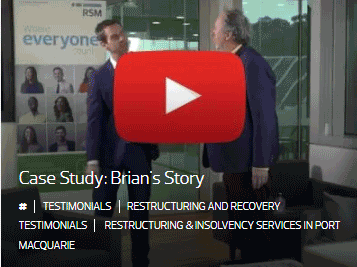Understanding Voluntary Administration: A Lifeline for Insolvent Companies
When a company is facing financial difficulties, the voluntary administration process can offer a vital lifeline.
When a company is struggling financially, the voluntary administration process can provide a structured approach to address insolvency issues while maintaining business operations. Its aim is to give directors a pathway to address any insolvency issues and return to a healthy trading prospect with creditor support.
The role of the Voluntary Administrator
![]() A administrator is appointed to manage the company’s affairs during the process. The administrator's primary role is to investigate the company's financial position and report to creditors. The report to creditors outlines the company’s financial status, the likely outcome for creditors, and any proposals for a deed of company arrangement (DOCA).
A administrator is appointed to manage the company’s affairs during the process. The administrator's primary role is to investigate the company's financial position and report to creditors. The report to creditors outlines the company’s financial status, the likely outcome for creditors, and any proposals for a deed of company arrangement (DOCA).
A pathway to recovery
Pause and Protect
Secure a moratorium on creditor actions.
Stabilise the Business
Overcome short-term challenges caused by cash flow issues or isolated financial setbacks.
Turnaround Strategy
A Deed of Company Arrangement (DOCA) is the next step for businesses with the potential to recover.
Breathing Room
Shield directors from liability for company debts incurred during the restructuring process.
Tackle Legacy Debt
Address and strategically manage legacy debt through restructuring.
Optimise Operations
Frequently asked questions
What is voluntary administration? An insolvency procedure where an external administrator is appointed because the company is in financial trouble. The 'voluntary administrator' is appointed by: the directors after they have decided the company is or is likely to become insolvent.
You should be aware that a company placed in voluntary administration does not mean it is the end of the company or the business, and it is not an admission by the director of failure.
Some advantages of placing a company into Voluntary administration are:
- It gives statutory protection from legal action.
- Allows the director time to refocus and improve the business.
- The administration can improve the profitability of the company.
- It permits negotiation with company creditors.
- Stops insolvent trading.
- The company can continue to trade.
- The director avoids personal liability.
When appointed, an administrator takes on the responsibility for trading, decision making and all liabilities incurred during the administration process.
The aim of a voluntary administration is to enable the business, property and affairs of an insolvent company, or a company which may become insolvent, to be administered in a way that maximises both the chances for the company to continue in existence; and for the return to creditors and shareholders
Voluntary administration is not the same as liquidation.
The purpose of liquidation is to wind up a company, whereas the purpose of voluntary administration is to assess the company's viability, turn its fortunes around if possible and provide a better return to creditors if not.
Our experts will provide detailed advice on the benefits of the voluntary administration process and whether the process is recommended for each specific case.
Secured creditors of an insolvent company may have the authority to appoint an administrator. If a secured creditor holds security over "the whole or a significant portion" of the company's assets, they may be entitled to enforce their rights through the voluntary administration process.
Looking for more information about the process?
We are here to help Australians in financial distress.
Our expert advice can really help you get back on your feet and move on with your life. Get in touch today >>



















